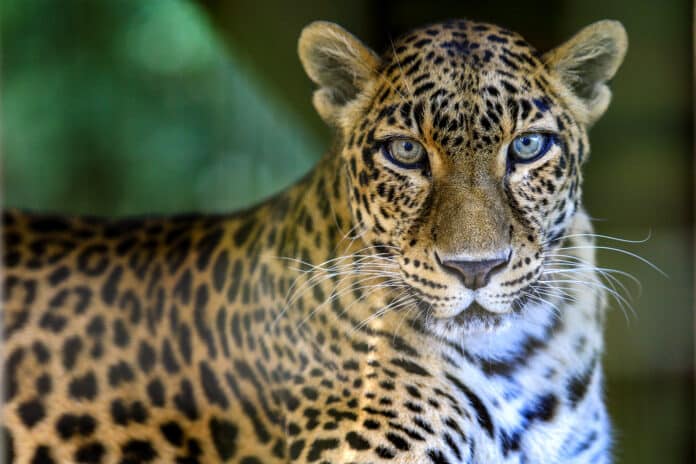By SUE QUIGLEY
HERNANDO SUN WRITER
“What is often not understood is that the rampant breeding for cub petting that results in so many untracked captive animals in the U.S. is contributing to possible extinction of tigers and other big cats in the wild. The State Department has confirmed that domestic private ownership of big cats in the U.S. is problematic as they work with other nations to oppose tiger farming and trafficking”
— Carole Baskin, founder and CEO of Big Cat Rescue
In November 2018, the Hernando Sun reported on the unregulated trade and nationwide abuse of captive big cats and we visited Big Cat Rescue in Tampa, a nonprofit organization that is devoted to ending the private trade and ownership of exotic felines by way of educational outreach and legislation.
Recently, that legislation has taken a positive path and the Animal Welfare Institute, Big Cat Rescue, Born Free USA, the International Fund for Animal Welfare, the Humane Society of the United States, Humane Society Legislative Fund and Performing Animal Welfare Society are celebrating the reintroduction of the Big Cat Public Safety Act (BCPSA) in the U.S. House of Representatives. Championed by Reps. Michael Quigley (D-IL) and Brian Fitzpatrick (R-PA), the bill would ensure that unqualified individuals are prohibited from obtaining and keeping dangerous big cats such as tigers, lions, leopards and cougars.
Howard Baskin, the advisory board chairman of Big Cat Rescue explained, “The focus of the bill is to end the ownership of big cats as pets and to stop the exploitative cub petting and photo opportunities that drives 90 percent of breeding.
“This will substantially reduce the number of big cats suffering inhumane, inadequate housing and treatment in backyards and roadside zoos,” he said.
According to Big Cat Rescue, founded by Carole Baskin in 1992, it is estimated that there are between 10,000 to 20,000 big cats held in private ownership in the U.S., and many incidents involving captive big cats have resulted in the deaths of 22 humans, 248 maulings, 260 escapes, 144 big cats deaths and 131 confiscations.
This is an issue that continues to garner national headlines. The most recent shocking incident that put the community and first responders at risk occurred just last month when officials in Houston, Texas, discovered an adult tiger in a small, filthy, unlocked cage in a back room of an abandoned home.
In their recent press release, Reps. Quigley, Fitzpatrick and 52 bipartisan cosponsors call for an end to the unregulated trade and nationwide abuse of captive big cats.
“From irresponsible breeding to inhumane living conditions and public exploitation, the mistreatment of big cats comes in a variety of forms,” said Rep. Quigley. “By introducing the Big Cat Public Safety Act, we are working to address a serious issue that causes immeasurable animal suffering and introduces inexcusable threats to human safety. State laws regarding private ownership of big cats are inconsistent or nonexistent, which is why a uniform federal law is necessary to end this dangerous industry once and for all.”
Apart from keeping dangerous big cats out of private hands, the bill would also prohibit the public from petting, feeding, taking photos with, and playing with cubs.
Allowing the public to handle and pose with tiger and lion cubs is an unscrupulous practice that has caused misery for untold numbers of animals and is the primary cause of surplus tigers flooding the U.S. exotic animal trade.
The abuse begins when the babies are prematurely and forcibly separated from their mothers, usually immediately after birth. The cubs can be used for public handling until they are just a few months old, at which point they are often discarded—often to end up in poorly run roadside zoos, pseudo-sanctuaries or private menageries. Babies must be continually produced to fuel this lucrative business. The practice also poses a safety risk; even very young big cats have sharp teeth and claws that can inflict serious injury, and a number of tiger cubs used for photo ops have been found with ringworm infections.
We are on the verge of losing this beautiful and iconic species and its survival is critical. Many countries have now banned the exploitation of exotic animals but, unfortunately, the United States is not yet one of those nations.
The Big Cat Public Safety Act H.R.1818 / S.2990 is a federal bill that would end cub petting, ban most private ownership, and would greatly restrict the breeding of big cats.
If you’d like to show your support for this bill, contact your legislator, text CATS to 52886 and follow the prompts or go to bigcatrescue.org/bigcatact/

